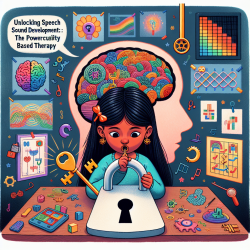Introduction
As practitioners dedicated to improving children's outcomes, leveraging data-driven insights is crucial. A recent study titled School Health Implementation Tools: A Mixed Methods Evaluation of Factors Influencing Their Use sheds light on the utilization of CDC-developed tools designed to enhance school health programs. This blog explores how practitioners can harness these findings to refine their strategies and foster healthier school environments.
Understanding the Research
The study employed a mixed-methods approach to evaluate the use of four CDC tools aimed at promoting physical activity, nutrition, health education, and parent engagement in schools. The evaluation was guided by two frameworks: the Interactive Systems Framework (ISF) and the Consolidated Framework for Implementation Research (CFIR). These frameworks helped identify factors influencing the tools' use at state, district, and school levels.
Key Findings
The research highlighted several critical insights:
- Awareness and Training: While most state staff were aware of the tools, confidence in using them varied. Training and technical assistance were pivotal in boosting confidence and usage.
- Tool Complexity: Tools were valued for their credibility and evidence strength but were often deemed too complex for school staff. Adaptability and compatibility with local contexts were crucial for successful implementation.
- Support Strategies: Effective use of tools was linked to robust support strategies, including training, technical assistance, and promotion. These strategies facilitated the adaptation of tools to fit local needs.
Implications for Practitioners
Practitioners can draw several lessons from this study:
- Invest in Training: Enhance your team's confidence and proficiency with implementation tools through targeted training and technical assistance.
- Simplify and Adapt: Break down complex tools into manageable components that align with your school's unique context and needs.
- Engage Stakeholders: Foster collaboration with state and district partners to leverage external support and resources effectively.
Encouraging Further Research
This study underscores the importance of continuous evaluation and adaptation of implementation tools. Practitioners are encouraged to delve deeper into the research and explore how these tools can be tailored to their specific environments. By doing so, they can contribute to the ongoing refinement of strategies that support children's health and development.
Conclusion
Implementation tools are invaluable in promoting evidence-based interventions in schools. By understanding the factors influencing their use, practitioners can enhance their effectiveness and create healthier school environments. For those interested in exploring the original research paper, please follow this link: School health implementation tools: a mixed methods evaluation of factors influencing their use.










